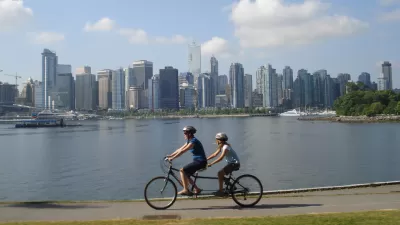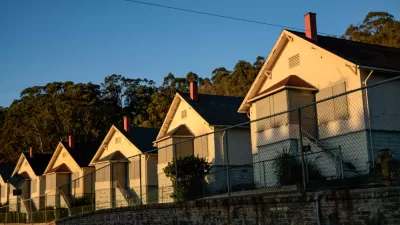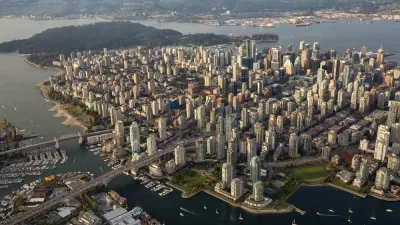The Vancouver Empty Homes Tax will soon be three times as high as it was when adopted in 2017.

"The empty homes tax in Vancouver will more than double next year," reports Alyse Kotyk. "Council voted in favour of increasing the tax from 1.25 per cent to three per cent for 2021."
The city adopted the tax in 2017 to control the cost of housing in the expensive city (along with a foreign buyer tax) by removing incentives for speculation, starting the tax originally at 1 percent, according to Kotyk.
Another article by Eric Zimmer details the results of the Empty Homes Tax on several key housing market metrics: "According to the city, there has been a 25% reduction in the number of vacant properties recorded between 2017 and 2019. Of the 1,989 properties declared vacant in 2018, 41% were converted to occupied status last year."
The Empty Homes Tax has also raised revenue for new affordable housing projects totaling $61.3 million, along with another $25 million for the 2019-2022 Community Housing Incentive Program, "which provides grants to non-profit housing operators to improve the affordability of social housing and co-op housing projects," according to Zimmer.
Another article by CBC News cites analysis by the Canada Mortgage and Housing Corporation that credits the tax with pushing 5,000condominiums to the rental market in 2019, including 3,000 units in Downtown Vancouver alone.
FULL STORY: Vancouver's empty home tax is increasing to 3% next year

Maui's Vacation Rental Debate Turns Ugly
Verbal attacks, misinformation campaigns and fistfights plague a high-stakes debate to convert thousands of vacation rentals into long-term housing.

Planetizen Federal Action Tracker
A weekly monitor of how Trump’s orders and actions are impacting planners and planning in America.

In Urban Planning, AI Prompting Could be the New Design Thinking
Creativity has long been key to great urban design. What if we see AI as our new creative partner?

King County Supportive Housing Program Offers Hope for Unhoused Residents
The county is taking a ‘Housing First’ approach that prioritizes getting people into housing, then offering wraparound supportive services.

Researchers Use AI to Get Clearer Picture of US Housing
Analysts are using artificial intelligence to supercharge their research by allowing them to comb through data faster. Though these AI tools can be error prone, they save time and housing researchers are optimistic about the future.

Making Shared Micromobility More Inclusive
Cities and shared mobility system operators can do more to include people with disabilities in planning and operations, per a new report.
Urban Design for Planners 1: Software Tools
This six-course series explores essential urban design concepts using open source software and equips planners with the tools they need to participate fully in the urban design process.
Planning for Universal Design
Learn the tools for implementing Universal Design in planning regulations.
planning NEXT
Appalachian Highlands Housing Partners
Mpact (founded as Rail~Volution)
City of Camden Redevelopment Agency
City of Astoria
City of Portland
City of Laramie




























